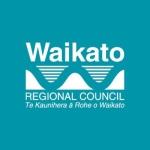Regional councils sign geothermal agreement
Regional councils Environment Bay of Plenty and Environment Waikato (EW) have agreed to explore collaborative management of the bulk of New Zealand’s geothermal resources.
Under a memorandum of understanding (MoU) signed between Environment Bay of Plenty chief executive Bill Bayfield and EW chief executive Bob Laing, the two councils acknowledge that collaborative management makes good sense.
“Electricity generators see geothermal energy as the most strategic renewable energy source in the country and plan to invest around $3 billion in the next five years. This is a huge proposed investment and it’s to everyone’s advantage to have consistent management,” said Mr Laing.
The Resource Management Act requires councils to balance the competing demands of development, tourism, conservation and the cultural values of a resource.
“While New Zealand has considerable experience in using geothermal energy, geothermal systems are highly complex,” Mr Laing said.
“With big developments, there needs to be an accurate assessment of the risks, such as the likelihood of subsidence or earthquakes, the effects of re-injection of fluids, downstream impacts on water catchments, impacts on groundwater and consideration of future uses.
“This requires specialist scientific and technical geothermal expertise which is scarce. By working together we can share this knowledge, reduce costs, and effectively and efficiently manage this nationally important resource.”
Mr Bayfield said the MoU would align both regional councils’ policies, monitoring and, in the longer term, their resource consent and compliance processes for managing geothermal resources.
“Together, we manage most of New Zealand’s geothermal resources, predominantly in the Taupo Volcanic Zone, which stretches from south of Taupo to White Island (Whakaari) and beyond. Environment Waikato has a lot of experience in large geothermal development, while our experience is more on management of multiple shallow geothermal bores, so this agreement is a natural collaboration of our complementary skills and resources,” he said.
The MoU says four areas for potential collaboration are policies, resource monitoring, consents and regulations, and community engagement.
Short-term objectives of the agreement include:
· determining cost recovery principles and procedures related to geothermal development applications, monitoring and compliance
· developing data and information compatibility.
A working group involving staff from both councils will develop a plan for achieving these short-term objectives.
